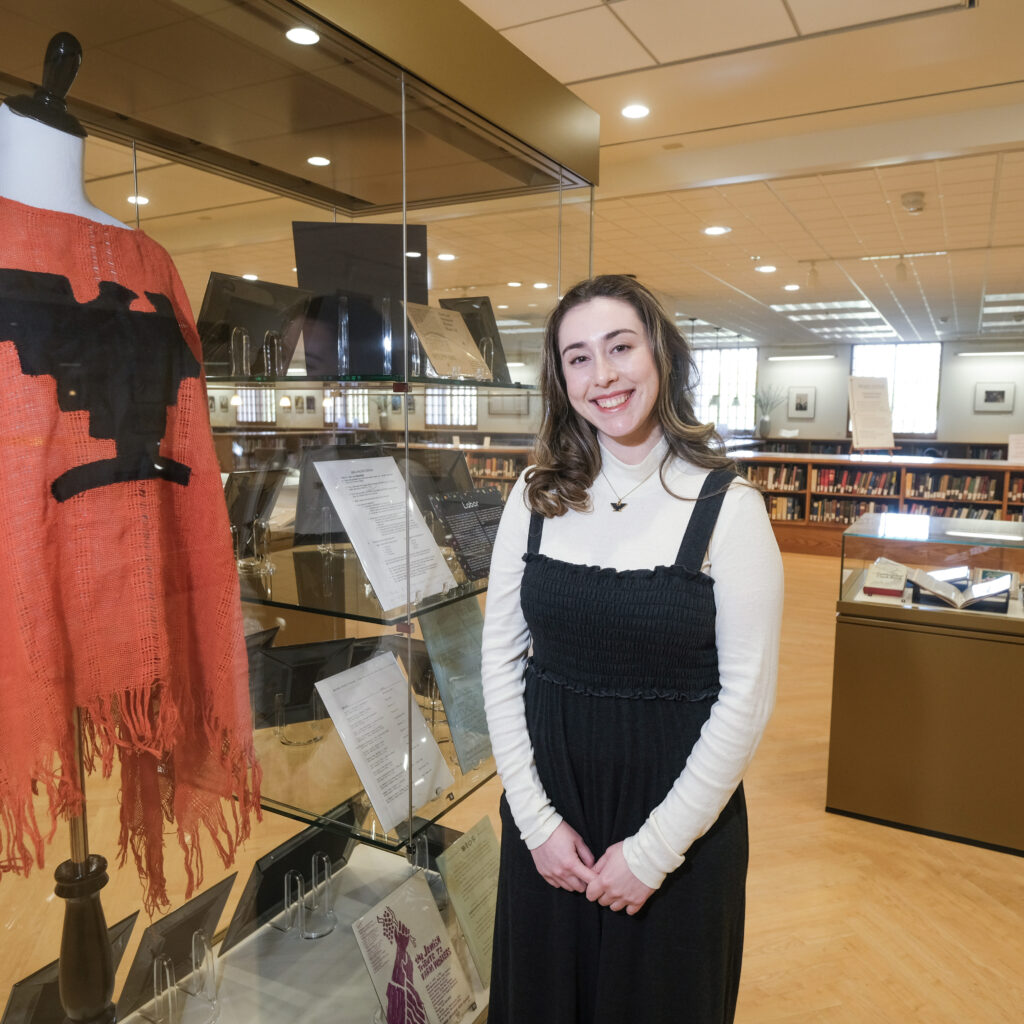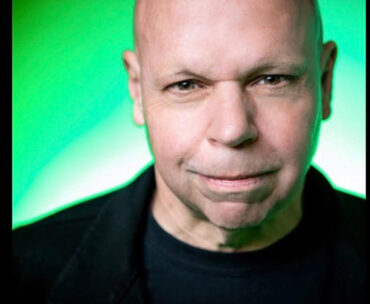
Here at CSUN, the community has a unique opportunity to explore the history of the United Farm Workers and the Chicano Rights Movement with the archives at the University Library and the Tom and Ethel Bradley Center, which has the Farmworker Movement Collection.
CSUN graduate student (mass communication) and CSUN Today contributor Analisa Venolia’s grandparents were founding members of the United Farm Workers union, and their personal recollections are part of the Tom and Ethel Bradley Center’s archives and the University Library’s archives. The following first-person essay on her efforts to learn more about their work was written for CSUN Newsroom.
Growing up, I heard many stories about my grandparents, Irene Ramos Chandler and Bill Chandler, and their work to help establish the United Farm Workers. I heard about their arrests in Texas for organizing strikes and protests, their meetings with politicians, like Ted Kennedy, Tom Hayden and former President Lyndon B. Johnson, and their experiences with Chicana/o labor activist legends, like Dolores Huerta and Cesar Chavez.
My grandfather had worked as an orderly in a hospital before joining the UFW with my grandmother. She was a farmworker, who had labored in fields picking everything from lettuce to strawberries. Grapes were the worst to pick, she said, because the vines were so “mean” due to their thorns. I’ve spent many hours talking with my grandfather, who currently lives in Mississippi and heads a nonprofit that advocates for immigrant rights, about his time with the UFW. My grandmother passed away when I was in the first grade, so I was not able to hear many stories directly from her and instead heard them from my mother, who made sure to honor her memory.
I knew that my grandparents’ records of their involvement with the UFW were stored in the University Library, but it wasn’t until I began pursuing a graduate degree here at CSUN that I truly understood what that meant. For some reason, as silly as it sounds, I had an image in my head of the records locked away in boxes in the basement of the library, unable to be accessed by the public.
After a recent class about research methods, during which my professor used my family archives as an example of how to access archival records, I realized that the public — and I — can easily explore this material.
I went to the Special Collections room on the second floor of the library and requested to see both my grandparents’ collections. Due to some technical issues, I wasn’t able to view my grandfather’s collection but I received multiple boxes from my grandmother’s. I saw my grandmother’s union earrings with the UFW eagle — which were much larger than the pendant that was passed down to me. I leafed through photos I had never seen, and various union paraphernalia, including a songbook of UFW tunes sung during marches and meetings. I noticed that I had only received five of the six boxes in my grandmother’s collection, and when I asked about the missing box, I was informed that the shawl my grandmother made for Dolores Huerta was in the University Library Exhibit Gallery. It is currently displayed as part of the “Eating the Archives” exhibit about the complexities of food.
Seeing my grandmother’s collection was bittersweet. I was both proud of her and sorry that I didn’t have the opportunity to get to know her well. I would have loved to speak to her about the items in the collection and her memories of working as an activist across the United States. Overwhelmingly, however, I was thankful that her contributions to history were being preserved.
Viewing the items in my family’s archives has sparked new conversations for me and my mother about our family history. I asked questions about the items in the archives and she shared stories from her childhood that I hadn’t heard before, like that my grandmother couldn’t sew well and that she made the shawl for Delores Huerta out of produce sacks that she had on hand. We’re also planning a family visit to the archives with my aunts, uncles, and cousins so they can see what is there.
To know that the records of my family’s contributions to the Chicano Movement and labor history will be used to further understand and appreciate the powerful historical moment that was UFW activism in the 1960s and 70s makes me deeply proud.
To me, my grandmother is the woman I hear about from my mother’s and aunt’s stories and my grandfather is the man who talks for hours about politics. There are people involved with the la causa who are more famous than my grandparents, but when I saw my grandparents’ archives, it reminded me that my grandparents made valuable contributions to history and influenced the lives of people outside of my family, and will continue to do so, thanks to the Bradley Center and the University Library.
Cesar Chavez Day, which celebrates the birth of the first President of the United Farm Workers takes place this year on Monday, April 1. The day is also about recognizing the work of the UFW members and their supporters to create better working conditions for the people who harvest our food. Californians are encouraged to spend the day in acts of service and education about past and present issues facing farm workers, including health, safety, pay and immigration.




Comments are closed.